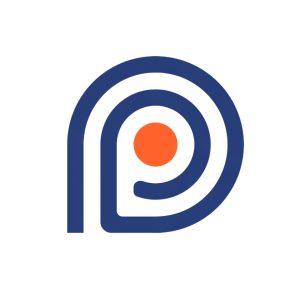Predictive Oncology Develops Novel Approach to Identifying Clinically Viable Abandoned Drugs
Rhea-AI Summary
Predictive Oncology (NASDAQ: POAI) has developed a novel approach to repurpose abandoned oncology drugs using active machine learning and their biobank of patient-derived tumor cells. The company successfully identified three promising compounds in less than 12 weeks:
1. Afuresertib (Akt inhibitor): Showed strong results in ovarian and colon tumors
2. Alisertib (Aurora A Inhibitor): Outperformed standard care drugs in colon and breast cancer
3. Entinostat (HDAC1/3 inhibitor): Demonstrated strong response in colon samples
The screening method efficiently evaluated these compounds against tumor indications that were previously unexplored. Notably, Alisertib and Entinostat outperformed Oxaliplatin in colon tumor treatment, while Alisertib also showed superior results compared to Ribociclib in breast cancer treatment.
Positive
- Successfully identified three promising abandoned drugs for new cancer indications
- Demonstrated superior performance compared to standard care drugs
- Rapid screening process completed in under 12 weeks
- Created commercially sustainable approach for drug repurposing
Negative
- Identified drugs still require further clinical trials and validation
- testing to only ovarian and colon tumor types
News Market Reaction 1 Alert
On the day this news was published, POAI gained 1.80%, reflecting a mild positive market reaction.
Data tracked by StockTitan Argus on the day of publication.
New indications discovered by applying active machine learning and using samples from the company’s vast biobank of live-cell tumors specimens
Builds upon Predictive’s biomarker discovery platform to select targeted patient cohorts to significantly de-risk clinical trials
PITTSBURGH, April 15, 2025 (GLOBE NEWSWIRE) -- Predictive Oncology Inc. (NASDAQ: POAI), a leader in AI-driven drug discovery, announced today that it has made significant progress along the continuum of biomarker discovery, drug discovery and drug repurposing. These latest developments build upon Predictive’s ongoing initiative to combine its in-house biomarker identification platform with its AI screening capabilities.
Identifying new indications using active machine learning and a biobank of patient derived dissociated tumor cells (DTCs) represents a novel and commercially sustainable approach to repurposing abandoned oncology drugs.
“This efficient screening approach on a small, curated cohort of abandoned drugs identified three compounds that warrant further exploration in tumor indications that have never been examined in this way,” said Dr. Arlette Uihlein, SVP of Translational Medicine and Drug Discovery and Medical Director at Predictive Oncology. “The work that we have done successfully demonstrates our ability to utilize our active machine learning and biobank of tumor samples to capture patient response heterogeneity in less than 12 weeks.”
The results of Predictive’s novel approach to identifying clinically viable abandoned drugs are compelling.
Three drugs gave strong results for both ovarian and colon tumors. Specifically, Afuresertib, Alisertib and Entinosta demonstrated the highest proportion of hits within those two tumor types. Notably, Alisertib and Entinostat outperformed Oxaliplatin, a standard of care drug in the colon tumor type, while Alisertib also outperformed Ribociclib, a standard of care in breast cancer.
Afuresertib, is an Akt inhibitor that was previously studied in esophageal cancer, multiple myeloma, and more recently, attempted in combination with paclitaxel in platinum resistant ovarian cancer.
Alisertib, a selective Aurora A Inhibitor previously studied for use in both EGFR-mutated non-small cell lung cancer (NSCLC) and metastatic breast cancer, showed strong tumor drug response in ovarian and colon tumors based on both Predictive’s wet lab testing and AI models. This drug is currently being evaluated in clinical trials for recurrent/metastatic breast cancer and lung cancer.
Entinostat, an HDAC1/3 inhibitor which was previously studied in solid tumor types, including breast and pancreatic, had a strong tumor drug response in the company’s colon sample models. This drug is currently in clinical trials for use as a combination therapy in patients with NSCLC and for the purpose of biomarker development.
Of particular significance to Predictive Oncology, this drug class was previously shown to induce mitochondrial dysfunction in colorectal cancer, which is a possible target for further exploration combining the company’s high content imaging (HCI) assay and its proprietary and internally derived HCI analysis pipeline.
“Applying this approach to other sets of publicly available abandoned drugs is a next logical step,” said Raymond Vennare, CEO of Predictive Oncology. “But, more importantly, from the perspective of partnering opportunities with pharmaceutical companies to retain or repurpose their own abandoned drugs, our methodology would be advantageous in terms of efficiently transitioning their abandoned drugs back to clinical trial readiness.”
About Predictive Oncology
Predictive Oncology is on the cutting edge of the rapidly growing use of artificial intelligence and machine learning to expedite early drug discovery and enable drug development for the benefit of cancer patients worldwide. The company’s scientifically validated AI platform, PEDAL, is able to predict with
Investor Relations Contact:
Mike Moyer
LifeSci Advisors, LLC
mmoyer@lifesciadvisors.com
Forward-Looking Statements
Certain statements made in this press release are “forward-looking statements” within the meaning of the “safe harbor” provisions of the Private Securities Litigation Reform Act of 1995. These forward- looking statements reflect Predictive Oncology’s current expectations and projections about future events and are subject to substantial risks, uncertainties and assumptions about Predictive Oncology’s operations and the investments Predictive Oncology makes. All statements, other than statements of historical facts, included in this press release regarding our strategy, future operations, future financial position, future revenue and financial performance, projected costs, prospects, changes in management, plans and objectives of management are forward-looking statements. The words “anticipate,” “believe,” “estimate,” “expect,” “intend,” “may,” “plan,” “would,” “target” and similar expressions are intended to identify forward-looking statements, although not all forward-looking statements contain these identifying words. Predictive Oncology’s actual future performance may materially differ from that contemplated by the forward-looking statements as a result of a variety of factors including, among other things, factors discussed under the heading “Risk Factors” in Predictive Oncology’s filings with the SEC. Except as expressly required by law, Predictive Oncology disclaims any intent or obligation to update these forward-looking statements. Predictive Oncology does not give any assurance that Predictive Oncology will achieve its expectations described in this press release.








